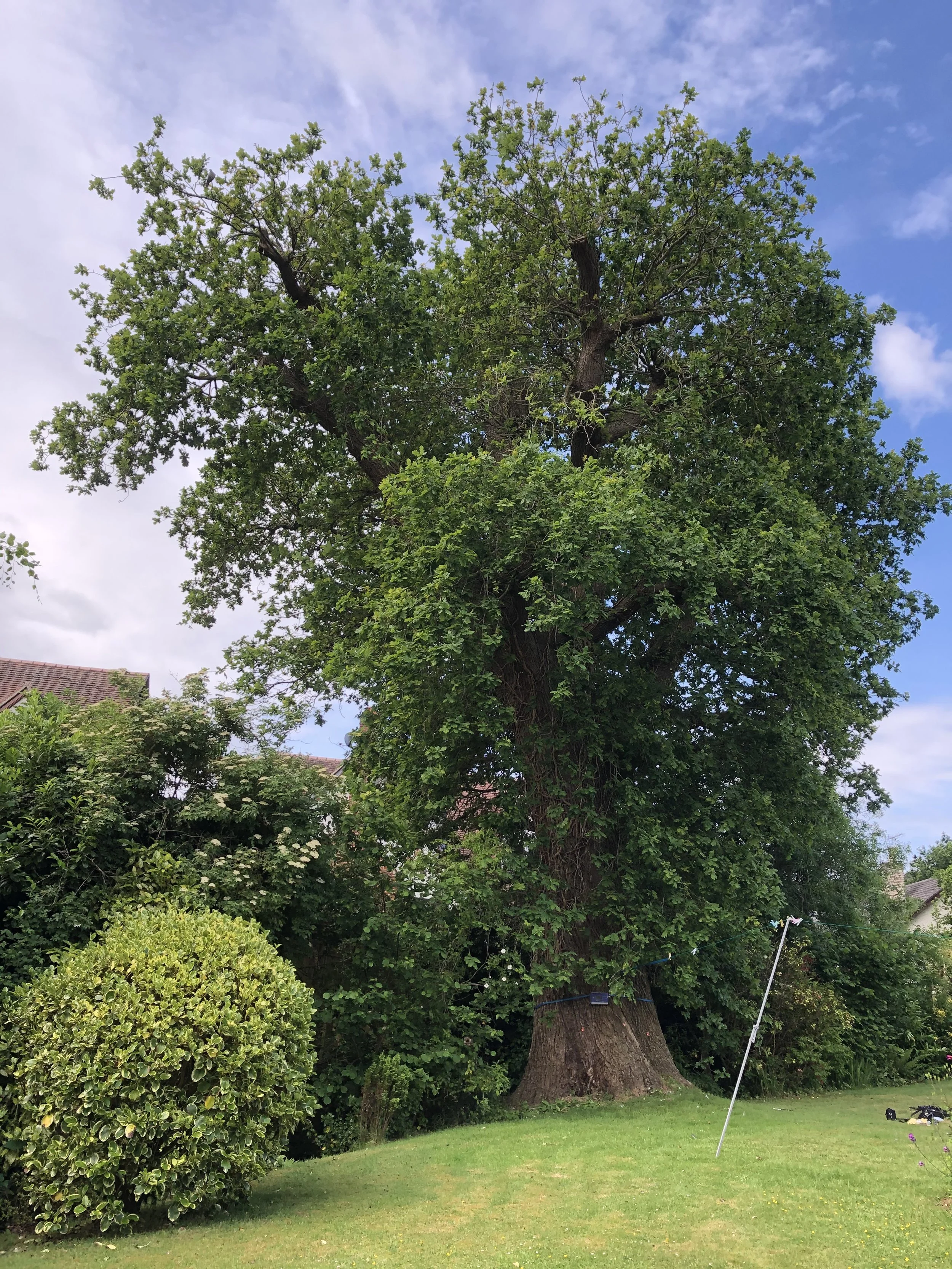The Wych Elm (Ulmus glabra) is considered to be the only true indigenous Elm tree in the UK, and now sadly it is one of our most endangered. These stately, majestic trees were once a common site across the British Isles, but have in recent years been decimated by the Dutch Elm Disease epidemic. Like many of our ancient native trees, Elms have a long relationship with humans and feature in our mythology and history as well as in our industry.
Unstoppable Force Vs. Immovable Object: Getting to the Root of the Issue
An interesting conundrum recently presented itself to consultant Graham: a listed wall, built in Exeter's local Heavitree Stone, had started to bow under pressure from the roots of a protected veteran Holm Oak, believed to have been planted at the same time the wall was constructed. Through careful assessment and conversation a way was found to preserve both wall and tree, protecting two local pieces of heritage in one go.
Devon's Ancient Rainforests: Mist, Mystery, History...and a Precious National Resource
You may have come across mention of Devon’s ancient rainforests in the news (LINK), or perhaps you know them personally and have visited one of the three miniature forests located on Dartmoor: Wistman’s Wood, Blackator Copse and Piles Copse. Known for their distinctive, gnarled oak trees, festooned with moss and lichens, and popular in local folklore, these woodlands are actually fragments of an increasingly rare part of our landscape.
Biosecurity Update: Phytophthora pluvialis
P. pluvialis is a fungus-like pathogen which affects a variety of trees but most commonly conifers such as pine, fir and spruce. Since October P. pluvialis has been found in other parts of Cornwall and in Devon, as well as a few isolated cases in the north of the country and Scotland, resulting in a demarcated area being drawn around areas known to be experiencing infections.




